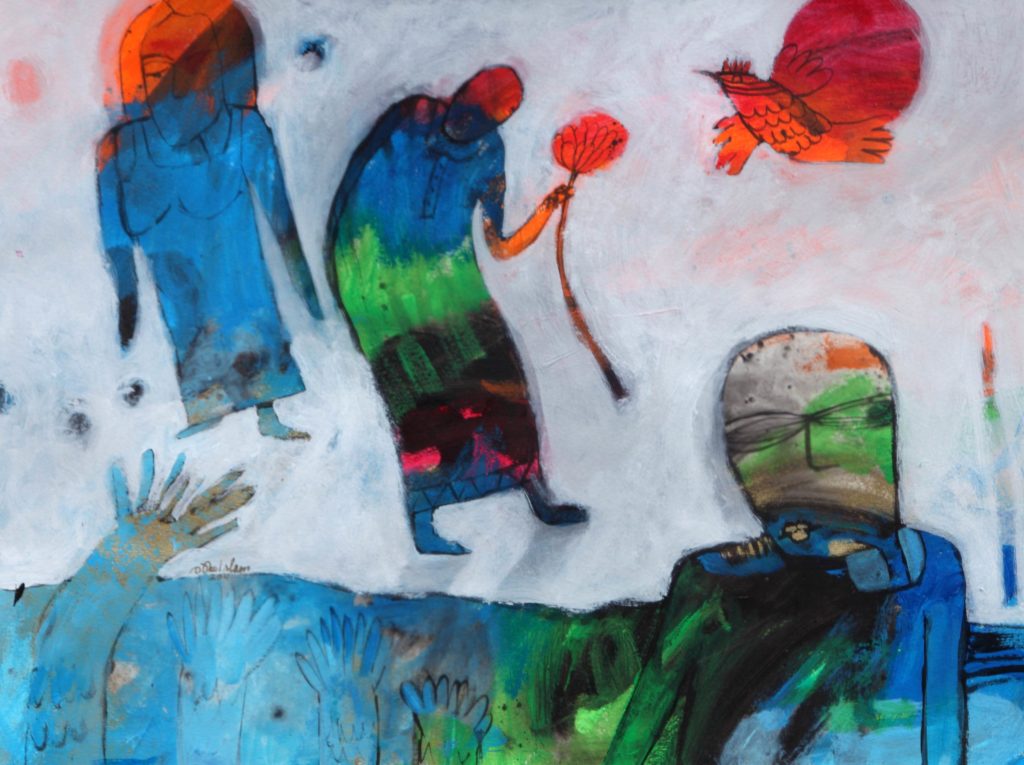By OMER FRIEDLANDER
Jerusalem, 1967
Aba sent us around the neighborhood to cut down sabra, using a knife taped to the handle of a broomstick. We severed the fruit heads, rolled them a few times on the grass to get rid of their thorns, and dropped them into a bucket. Tamar sat on Eran’s shoulders, her small dancer’s body leaning forward to reach the cactus with the bucket. I handled the broomstick, severing the purplish-orange prickly pear from the body of the cactus. When we were done, Tamar took the fruit to her mom, so she could make it into jam. Once it was ready, we stored it in the bomb shelter, along with the rest of the emergency supplies. The shelter was in the basement of our building, and we shared it with three other families. Tamar arranged the supplies carefully, as if she were handling explosives. Jars of blueberry and raspberry jam, white bread, dark bread, apples, peaches, and tin cans stacked one on top of the other filled the corner of the room. She wore a turquoise skirt and matching top. Eran grabbed Tamar’s hips from behind, making her jump.











